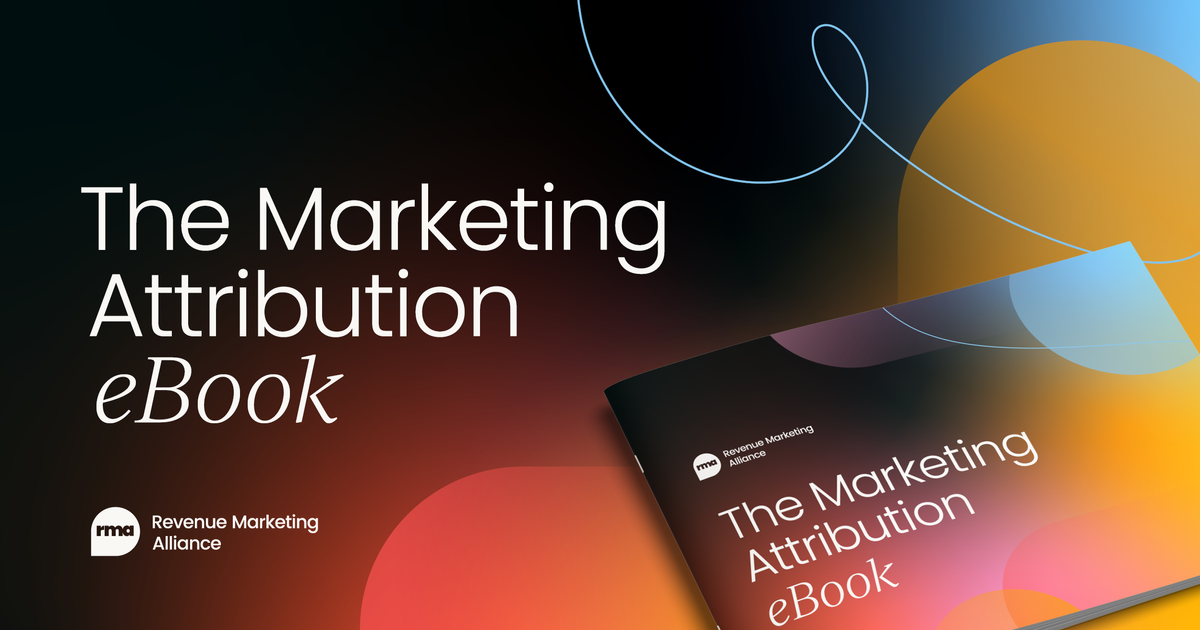How do you attract and retain top talent when even a slightly better compensation package can lure sales representatives and marketers away?
This question may seem impossible to answer, but the solution is within your reach.
Here are several ways you can improve your acquisition and retention efforts to increase your chances of success.
How acquisition and retention affect marketing success
You can source and maintain the top talent in your field through strategic acquisition and retention.
These individuals will work diligently to engage customers and drive earnings, helping your revenue marketing department meet its return on investment goal.
They can even help you outperform your competitors, ensuring your organization secures the most profitable accounts.
The opposite is often true if your acquisition and retention efforts need to be improved. You will find aligning marketing and sales efforts challenging if you cannot hire and retain talented individuals.
Marketers can only effectively engage existing customers if sellers make practical promises. Most organizations in your field experience this problem to some extent.
According to a 2022 survey of over 50 sales directors, 57% of business-to-business (B2B) sellers say they pay little attention to marketing department content because they feel it is too generic or unresponsive.
This mismatch of priorities and strategies will impact account retention and employee satisfaction. As top professionals outgrow their roles, they will take their talent – and their earning potential – elsewhere.
Although this knowledge seems unfortunate, it is helpful. The more you understand your situation, the better your chances of overcoming your problems.
You must focus on attracting skilled hires and keeping current workers satisfied to ensure the longevity and success of your department.

The challenge of sourcing and retaining skilled staff
Dozens of variables can influence your team’s satisfaction with their titles, compensation structures and duties. Salary and commission are often the most significant driving factors because many sales liaisons accept job offers for their high earning potential.
Your organization’s main problem may be that it trusts the wrong people – typically sales leadership or the accounting department – to develop compensation plans.
Although 78% of sales representatives trust compensation plans created by the revenue operations team, just 13% of organizations making under $30 million in annual revenue let revenue operations professionals take the lead.
How do you get well-performing workers to stay? What appeals to candidates when they view your job listings?
A marketing mismatch is another common reason acquisition and retention are challenging. You should view these domains as another type of marketing – how you sell your company to sales liaisons and marketers can make a huge difference.
How you approach applicants and long-tenured team members should be uncannily similar to how you market to customers. Understanding the needs and desires of your industry’s top talent can help your human resources (HR) department form better strategies.

How to attract professionals in revenue marketing
Employers can attract better talent in the revenue marketing field in several ways.
Provide compensation to reward sales teams
Applicants in this field often prioritize their future earning potential over other aspects of the position. Since lead generation is time-consuming – and their role in revenue marketing all but guarantees sales – many expect to be compensated fairly.
Typically, a residual commission structure that pays a percentage of a customer's recurring revenue is better than a flat rate for each sale, regardless of revenue.
Compensation incentivizes success while rewarding high achievers, so decision-makers should consider it an investment.
Offer assurance AI will not replace them
AI can create sales copy, research potential clients, summarize meeting notes, reimagine a sales pitch or initiate a personalized conversation. Gartner predicts 60% of seller work will take place through these tools by 2028, up from under 5% in 2023.
It's not just employers – 66.7% of B2B buyers opted for digital systems over in-person interactions in 2021. As traditional exchanges are phased out, sales representatives are left in limbo.
Understandably, many professionals are worried they will be forced out of the revenue marketing industry. Potential hires need assurance AI will support – not replace – them. Companies that offer this job security will gain a competitive edge in recruitment.
Use happy employees to market the firm
Happy employees are the best marketing. Management should ask the most content or longest-tenured employees why they find their roles so fulfilling. Finding out why they accepted the job offer and what made them stay helps the HR department.
Talent acquisition professionals who know what is likely happening inside a candidate’s mind can better engage. Knowing precisely where, when, and who to target increases the chance that individuals will accept job offers.

How to retain professionals in revenue marketing
Retaining top talent in revenue marketing can help guarantee client satisfaction and long-term growth. There are several ways leaders can keep their staff from seeking work elsewhere.
Develop upskilling and reskilling programs
The revenue marketing skill set is changing as digitalization takes center stage. Therefore, professionals engaging with them should work on their openness.
Sales representatives and marketers who believe they will not get these essential soft skills in their current roles will seek employment opportunities elsewhere.
Organizations should offer upskilling and reskilling programs to convince them to stay.
Have the Chief Revenue Officer offer guidance
A good boss can make almost any job enjoyable. This truth bridges business hierarchies, departments, and industries. Directors, executives, and chief officers should lead by example and foster a good work-life balance.
The chief revenue officer, executives, or whoever is in charge of the revenue marketing team should provide strategic direction and personalized guidance to employees. Their work should drive the company’s mission while supporting representatives.
Clearly outline career growth opportunities
In revenue marketing, many leaders believe sales and marketing professionals do not need ample career development opportunities. Their reason is that the candidates took the job for its high earning potential.

However, this perspective overlooks the importance of transparency in career progression – a crucial factor in employee satisfaction, as, according to one study, 60% of respondents said transparency was the most important trait in a brand.
Even those who believe there is room for growth think natural progression is a direct trajectory from a representative role to a management position. In reality, many professionals want something different – meetings and administrative work cut into their commissions.
Career development opportunities in revenue marketing should be varied and dynamic. Promotions and raises are just the start. Employers should offer larger accounts, online certifications, formal degree programs, or networking events.
Secure employee buy-in before integrating AI
Many B2B businesses are adopting AI. It can improve outreach by a factor of 10, making marketing one of its top applications. Notably, while many firms intend to use this technology, many have not fully implemented it yet.
Securing employee buy-in before proceeding with implementation is crucial. According to Deloitte, nearly 40% of leaders who rate their organization’s AI expertise very high say they trust adoption. The 38% who rate it lower mainly feel uncertainty.
Improving your strategies enhances revenue marketing
While the goal of revenue marketing is clear, achieving it is typically easier said than done. However, with the right team members, you can substantially increase your chances of success.
Consider implementing these acquisition and retention strategies to increase your odds of attracting and retaining the top talent in your industry.
With the Marketing Attribution eBook, you can turn marketing attribution from a challenge into your competitive advantage.👇




 Follow us on LinkedIn
Follow us on LinkedIn







